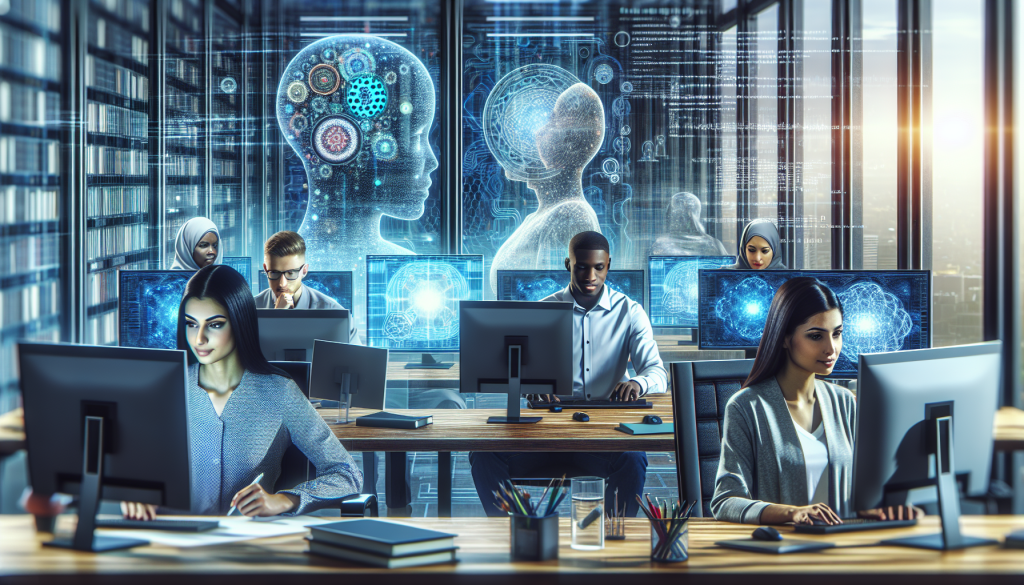
In the rapidly evolving technological landscape, AI-driven innovation stands at the forefront, revolutionizing the ways industries operate, grow, and innovate. This transformative approach not only redefines traditional processes but also creates pathways for unprecedented developments across sectors. With artificial intelligence advancing at a pace previously unimaginable, its role in innovation has become a key differentiator for businesses aiming to remain competitive and future-ready.
AI-driven innovation refers to the integration of artificial intelligence technologies into the innovation process to enhance efficiency, accuracy, and creativity. The impact of AI on industries is multifaceted, influencing product development, operational efficiencies, and customer engagement. As businesses eagerly adopt AI solutions to stay ahead, it’s crucial to understand how these technologies are setting the stage for the future.
One notable area where AI-driven innovation is making significant strides is in automating processes. By leveraging machine learning algorithms, companies can streamline routine tasks that once required excessive human intervention. For instance, in the manufacturing sector, AI is used to optimize supply chains, predict equipment failures, and improve product quality seamlessly. Such automation not only reduces costs but also minimizes human error, thereby enhancing overall productivity.
Beyond automation, AI-driven innovation is crucial in enhancing decision-making processes. In industries like finance, healthcare, and marketing, AI systems can analyze vast datasets to extract actionable insights, providing a competitive edge. Decision-makers can access predictive analytics, which forecasts trends and consumer behavior patterns, enabling companies to tailor their strategies more effectively. In healthcare, these insights aid in early disease detection and personalized treatment plans, improving patient outcomes significantly.
Moreover, AI is revolutionizing customer experiences by personalizing interactions and increasing engagement. In retail, AI-driven recommendation engines suggest products based on previous purchases and browsing history, making shopping experiences more intuitive and tailored. Similarly, chatbots powered by natural language processing (NLP) provide round-the-clock customer support, resolving queries efficiently and enhancing customer satisfaction.
As industries harness the power of AI-driven innovation, creative AI is also emerging as a game-changer. This form of AI, capable of generating new content such as audio, text, and art, is driving innovation in creative industries. The music and film industries, for example, are utilizing AI to compose music, edit videos, and even generate realistic animations, pushing the boundaries of what is creatively possible.
Additionally, AI-driven business model innovation is reshaping the global business landscape. As businesses explore new models driven by AI capabilities, they are discovering novel ways to deliver value and generate revenue. For instance, companies are implementing subscription-based models with AI-enhanced services, which adapt and optimize over time based on user interactions.
Despite these advancements, the integration of AI-driven innovation presents challenges that industries must navigate carefully. Issues such as data privacy, ethical AI usage, and workforce displacement necessitate thoughtful strategies and policy-making. Industries must tread carefully, ensuring that AI deployment is responsible and aligns with ethical guidelines to foster trust and acceptance.
Furthermore, organizations must invest in upskilling their workforce to prepare for an AI-driven future. As AI handles repetitive tasks, human workers will need to focus on strategic, creative, and complex problem-solving tasks. Training programs and educational initiatives that focus on AI literacy and skills will be pivotal in this transition.
In conclusion, AI-driven innovation is not just reshaping industries; it’s building the foundation of a new era of technological advancement. Companies that embrace AI as a core component of their innovation strategies are poised to lead in this new industrial revolution. As AI continues to evolve, its ability to learn from and improve upon its own processes will only accelerate further breakthroughs, making it essential for industries to adapt, innovate, and grow alongside this powerful technology. In doing so, they will unlock new opportunities, drive efficiency, and redefine the limits of what is possible in the future of industries.